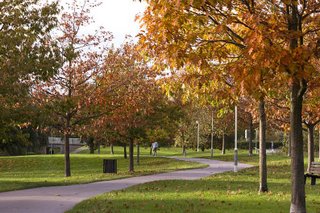 Legislation and Leisure
Legislation and LeisureIn an era when labor strikes were common and Australian parliaments were transacting labor legislation concerning workers’ wages and hours, Boreham’s articles about the importance of play in society were a variation on nature’s principle of rest, rhythm and retreat.[1]
Game of Life
His editorials addressing ‘A philosophy of play’ were pitched not only towards politicians but teachers and parents to encourage them to realize that toys and play were equipping children with the skills for “the game of life”.[2]
Education for Play
As an interesting development of this theme in a later editorial, Boreham suggested that teaching children to play well was preparing them “to enjoy to the utmost the majestic merriments of the eternities”.[3] In one of his earliest Tasmanian editorials, Boreham expressed the “need for more parks and reserves in Hobart” and called upon politicians to ensure that further playgrounds were provided for its people.[4]
Geoff Pound
Image: ‘…need for more parks.”
[1] The miners’ strike for maximum daily working hours in 1916 was an example of turbulence in the labour scene. The NSW parliament passed the Eight Hour Act in April 1916.
[2] Boreham, Mercury, 10 March 1913; 28 July 1923; 16 May 1936.
[3] Boreham, Mercury, 7 December 1946.
[4] Boreham, Mercury, 10 March 1913.


